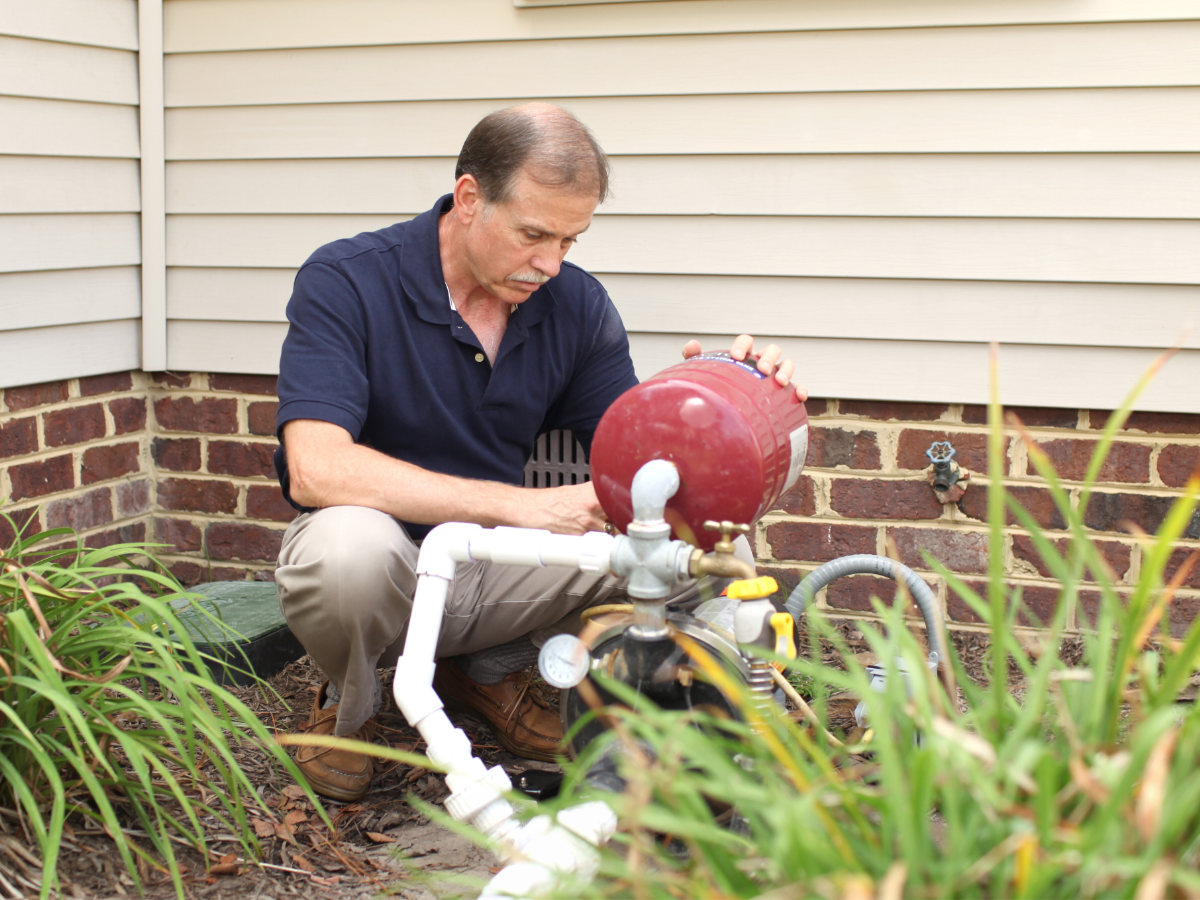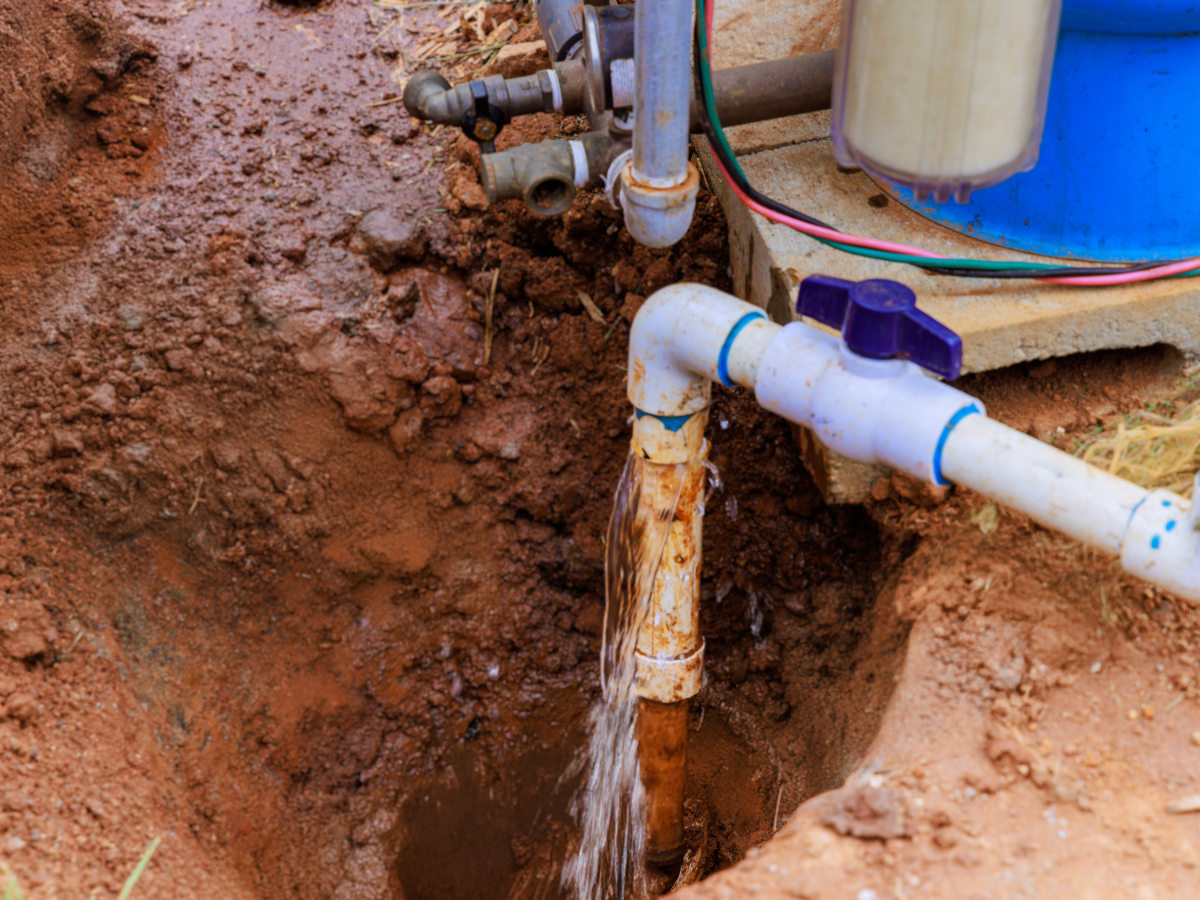 If you’ve ever relied on a well for water, you know how important a pump is. Every time you turn on a faucet, flush the toilet, or run the washing machine, your well pump is right there, working to bring fresh water up from underground.
If you’ve ever relied on a well for water, you know how important a pump is. Every time you turn on a faucet, flush the toilet, or run the washing machine, your well pump is right there, working to bring fresh water up from underground.
It’s an important job, especially if there’s no city water supply to fall back on. But how long can you count on that well pump? Is it one of those “install it and forget it” items, or does it need regular maintenance?
In this article, we’ll walk you through what keeps a well pump going, the common signs that it might need a replacement, and why keeping an eye on things can save you a lot of hassle. If you’re wondering how long your well pump should last, or you’re seeing early warning signs of trouble, read on.
Key Takeaways
- The average lifespan of a well pump is 8-15 years, but some last up to 30 years with proper maintenance.
- Different types of well pumps have varying lifespans and maintenance needs.
- Signs of a failing well pump include no water, low pressure, dirty water, or unusual noises.
- Regular maintenance, such as water quality checks and pump inspections, can help extend the life of your well pump.
Well Pump Basics
At its simplest, a well pump pulls water from the ground and directs it into your home’s water system. The heart of this setup is the pump motor, which works alongside a pressure tank.
The pressure tank is key: it maintains even water pressure and cuts down on the number of times your pump needs to run. By reducing the pump’s cycling frequency, the pressure tank plays a direct role in how long the pump lasts. Fewer cycles mean less wear and tear on the motor, and less wear and tear equals a longer life.
If your pump seems to run constantly, can’t build pressure, or has started making strange noises, you might have an undersized pump. Or maybe it’s just old and tired. Either way, these are early signs of trouble.
Types of Water Well Pumps
Not all well pumps are built alike. Here’s a quick breakdown of the main types:
- Jet Well Pumps: These are designed for shallow and deep wells. Shallow jet pumps (single-pipe systems) work up to about 25 feet. For deeper wells (over 100 feet), a two-pipe system is needed. Jet pumps work well for smaller, shallower wells but require a lot of power for deeper draws.
- Centrifugal Well Pumps: Centrifugal pumps are generally best for shallow water levels (under 25 feet) and are simpler, often used in older systems or as backup options.
- Submersible Well Pumps: Submersible pumps are located directly in the well and are activated only when water is needed. These pumps are preferred in modern deep-well installations, offering efficiency and longevity.
How Long Does a Well Pump Last?
With routine maintenance and careful use, most well pumps last between 8 and 15 years. Some go even longer, reaching up to 30 years, but that’s rare and usually requires a combination of light usage and consistent upkeep. The lifespan is influenced by various factors: frequency of use, water quality, pump type, and the overall condition of the water system.
Factors That Affect Longevity
- Usage Frequency: More frequent use means more cycles and increased wear.
- Water Quality: High mineral content can wear out pump parts faster.
- Pump Type: Submersible pumps generally last longer than jet pumps due to their design.
- Maintenance Routine: Regularly checking water quality and doing pump inspections can keep problems at bay.
Signs You Need Well Pump Replacement
 A well pump doesn’t usually stop out of nowhere; it gives a few clues beforehand. Here’s what to watch for:
A well pump doesn’t usually stop out of nowhere; it gives a few clues beforehand. Here’s what to watch for:
No Water
If you suddenly have no water, it’s a big red flag. Start by checking the circuit breaker to ensure power still flows to the well. Sometimes, it could be as simple as a tripped switch.
Resetting the pressure tank is another quick fix to try. If these don’t solve it, consider whether your pump might be nearing the end of its useful life.
Low Water Pressure
Low pressure is another signal of pump trouble, especially if you notice it across multiple taps.
The issue could stem from a faulty pressure tank, small holes, or mineral buildup inside the pipes. Iron-rich water can clog pipes, making the pump work harder than it should.
Dirty Water
When your water starts showing dirt, silt, or odd smells, that’s often a sign of trouble. A pump that’s oversized for the well might be pulling up sediment, which can damage the pump and contaminate the water.
If you notice anything unusual in your water, stop using it until you can get it tested and check for contaminants.
Air in Lines
Air bubbles coming from faucets often mean your pump is struggling to draw water, perhaps due to a cracked pipe or issues with the water table. Adjusting the pump depth or inspecting the piping may solve the problem.
Constantly Running Pump
A well pump that’s always on can mean one of several things: a low water table, a faulty suction line, or a leak in the system. The pump might also be struggling with a failing pressure switch or dealing with a continuously running toilet.
Frequent Circuit Breaker Trips
If your pump is tripping the breaker, it’s likely an electrical issue in the pump motor, which could point to a failing pump. Power surges or internal pump damage might also be causing this.
Rising Utility Costs
Suddenly higher electric bills with no change in water usage? That might be your pump’s way of saying it’s working harder than it should and is often a sign that replacement is around the corner.
Common Causes of Well Pump Failure
Pump failure can seem sudden, but there are usually clear reasons behind it.
Age and Wear
Just like any machinery, well pumps wear out. After about 15 years, the chances of failure go up significantly as parts start to break down and efficiency declines.
Water Quality
Poor water quality can cause mineral and bacteria buildup, clogging the pump and shortening its life. Regular water tests and installing water treatment solutions can extend the lifespan of the pump.
Drought
Low water levels, especially during dry spells, can strain your pump if it starts running dry. A low-water cutoff switch can help prevent your pump from burning out in these situations.
Lightning Strikes or Electrical Surges
Although rare, power surges and lightning strikes can damage the internal components of a well pump. If you live in an area prone to storms, you might consider extra protection like a surge protector.
Keep Your Well Pump in Top Notch Shape With Benjamin Franklin
![]() If you’re noticing any of these signs or want to keep your pump in good shape, Benjamin Franklin Plumbing in Niceville, FL, can help. They’ve got experience with well pump maintenance, repair, and replacement, so you don’t have to worry about a sudden water outage.
If you’re noticing any of these signs or want to keep your pump in good shape, Benjamin Franklin Plumbing in Niceville, FL, can help. They’ve got experience with well pump maintenance, repair, and replacement, so you don’t have to worry about a sudden water outage.
Their team of punctual plumbers can evaluate your system and make sure it’s running as efficiently as possible. If your pump is reaching the 10-15 year mark, consider having it inspected to catch issues early.
FAQs
When it comes to well pumps, there are a lot of questions. Here are some answers to the most common ones.
How often should a well pump be serviced?
An annual inspection is typically recommended, though high-usage systems might benefit from twice-yearly checks.
Can I replace my well pump myself?
Well pump replacement is a complex task best left to a professional, as it involves specialized knowledge and tools.
How do I know if my pressure tank is causing issues?
If your water pressure fluctuates or you’re hearing unusual noises, the pressure tank may be failing. A licensed plumber can confirm this.
Does water quality affect pump lifespan?
Absolutely. Hard water or high mineral content can cause buildup that damages the pump over time.
How can I tell if my pump is too small?
Constantly low pressure or a pump that seems to run endlessly might mean the pump is undersized for your needs.
Final Thoughts
Well pumps are sturdy but don’t last forever. With regular maintenance and by staying alert to warning signs, you can help extend the lifespan of this important part of your home’s water system.
If you’re facing persistent issues or are nearing the 10-year mark, reach out to a professional, like Benjamin Franklin Plumbing, to avoid sudden water loss and potentially higher repair costs down the line.